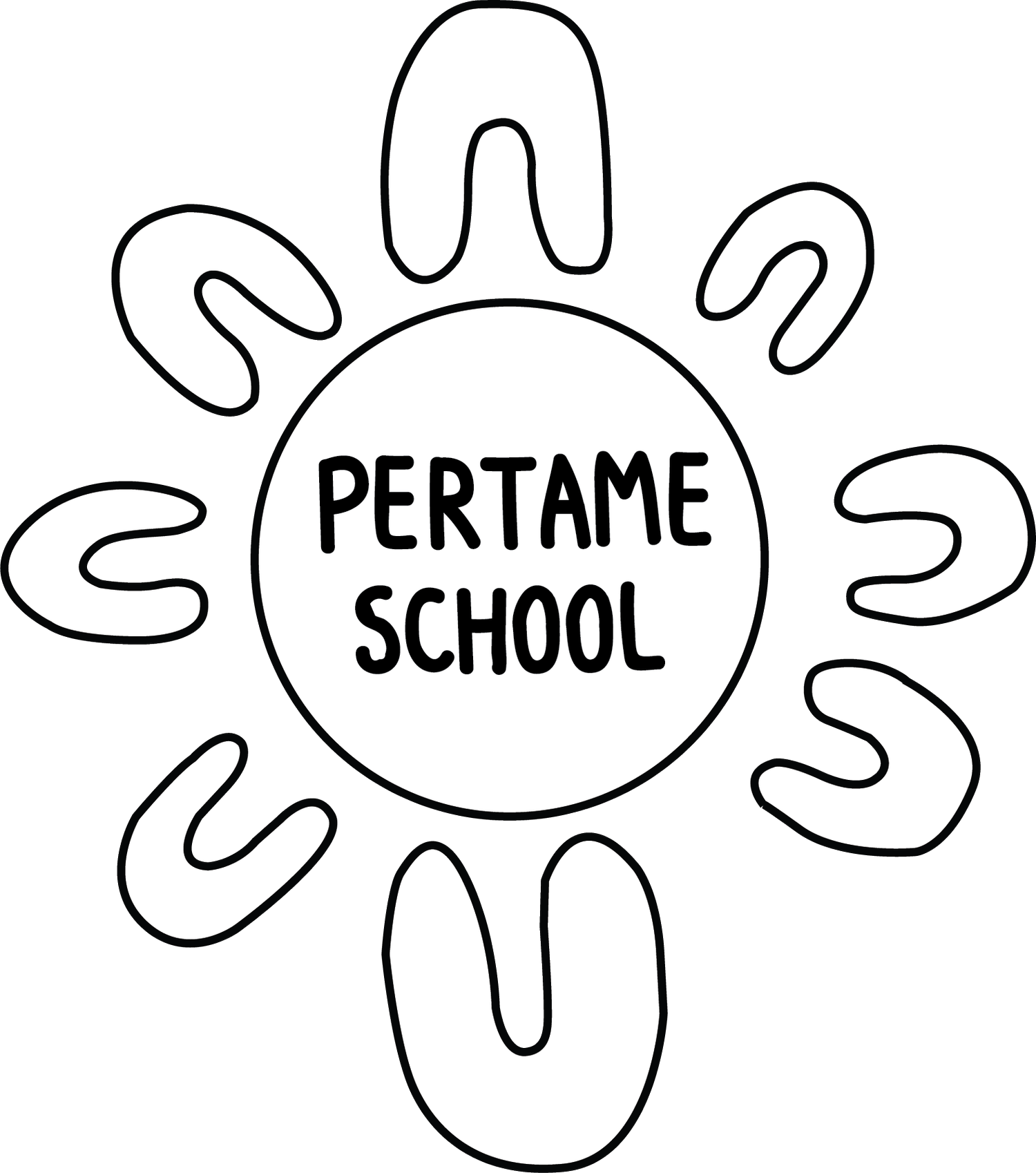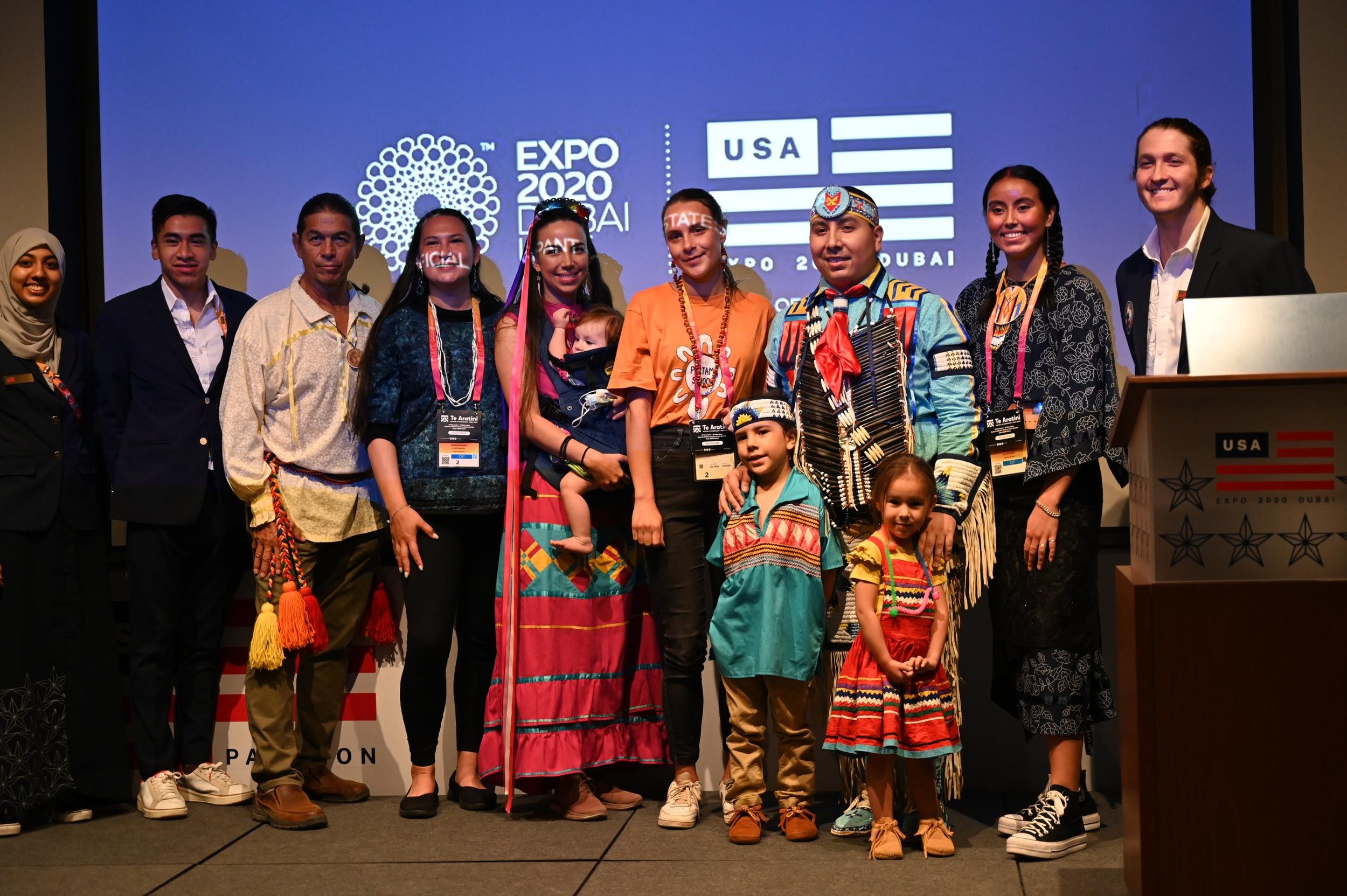
Master-Apprentice Conference
A hands on training to grow new fluent speakers of endangered Australian Indigenous languages
Led by Native American language revival experts
A 4-day conference in Alice Springs to provide practical training on how to implement a language learning model designed specifically for communities with small numbers of speakers and limited resources. The Master-Apprentice method was developed by small Indigenous language communities in California and has proven to be the most effective method for endangered language communities with the least resources.
This conference facilitated international cultural connections and knowledge sharing between Native American and Indigenous Australian communities seeking to keep their languages strong.
The Master-Apprentice Program (MAP) pairs fluent Elders and adult learners together to rapidly develop fluency through breath-to-breath language immersion, using traditional oral intergenerational language transmission from Elders to our youth.
Conference Outline
-
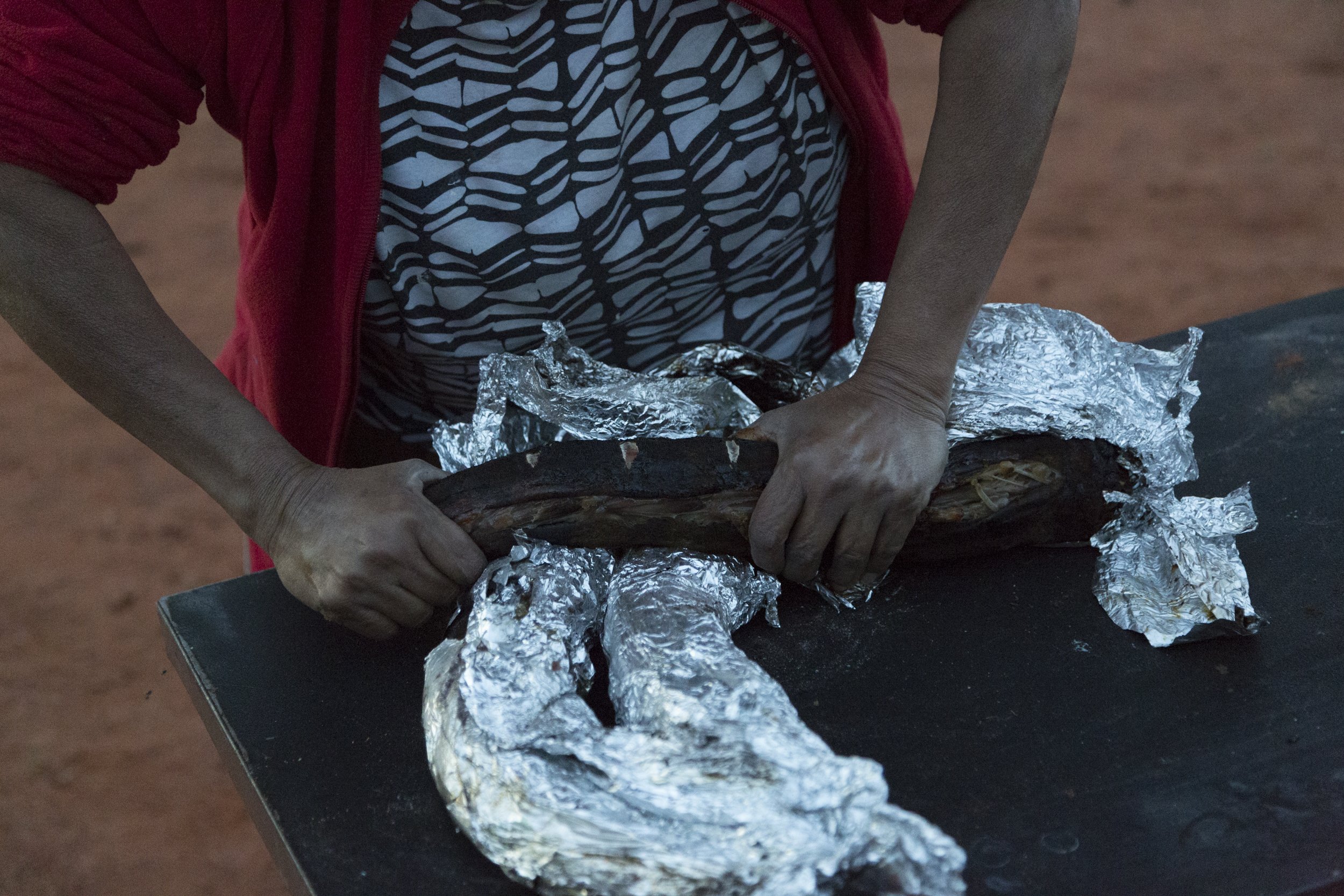
Monday night: Welcome Dinner and Launch Cultural Exchange
We will launch the conference, with a Welcome, smoking and dance performance from Arrernte Traditional Owners, a gift exchange with our Native American guests and Kangaroo tail dinner.
-

Tuesday, Wednesday and Thursday: Conference Days
Experienced trainers will teach the background for the MAP method including the importance of immersion learning, explain the Master-Apprentice process and give participants direct practice in using the method. There will be focused sessions for Elder speakers and for new Apprentice learners. The workshop will also provide direct training in using technology for documentation in video and audio and as an appropriate learning aid.
-
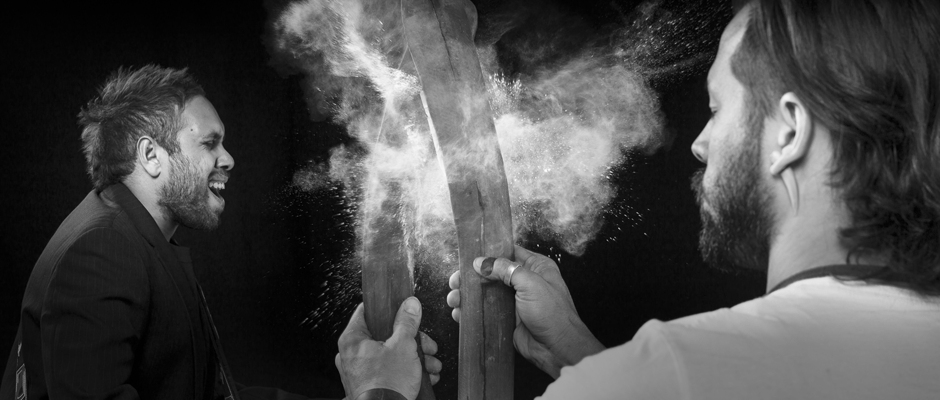
Thursday Night: Closing Dinner
Gala dinner, in-language talent show and live performances from local Indigenous artists
Where:
Conference Venue
Alice Springs, Northern Territory.
Conference hosted by the Batchelor Institute of Indigenous Tertiary Education at the Desert Peoples Centre Campus.
Accomodation
2-3 Bedroom Cabins at Big 4 Caravan Park
Further Information
Who:
This training is targeted at endangered Indigenous language groups that have few fluent Elders. Unfortunately if your language no longer has fluent speakers, this training may not be the most effective method for your language situation. We have a capped number of places and will prioritize language groups that are most endangered with strong Master-Apprentice (Elder-Learner) teams.
Applications now closed
Cost:
Accommodation, tickets and catering are fully covered. We are asking participants to cover their own transport to Alice Springs, and will offer several travel scholarships for special circumstances
Scholarships now closed
About the Organisations
-

Batchelor Institute
Batchelor Institute is the only First Nations dual sector tertiary education provider in Australia. The Institute gives precedence to its philosophy of Both Ways: positioning First Nations peoples as knowledge holders in all educational transactions with Western knowledge systems as well as privileging First Nations ways of learning and teaching to underpin our engagement with mainstream education systems and society more broadly.
-

The Global Indigenous Language Caucus
The Global Indigenous Language Caucus is providing training within this workshop and supports grassroots language revitalization projects that show the promise of growing new young language speakers through breath-to-breath immersion methodology with Elder speakers.
-

Pertame School
The Pertame School is a community-led language revival program empowering Pertame Elders to pass their language and cultural knowledge onto the next generation through the only active Master-Apprentice Program in Australia.
-

The Advocates for Indigenous California Language Survival
The Advocates for Indigenous California Language Survival works on the main goal of developing new speakers and believes that our spoken languages have a profound healing effect on the individual, the family and community.
Trainers
-

Richard Grounds
(Yuchi, Seminole), Ph.D., Chair, Global Indigenous Languages Caucus
Richard is the Executive Director of the Yuchi Language Project based in Sapulpa, Oklahoma, working with Yuchi Elders in creating new fluent speakers using immersion language methods. After completing his Ph.D. in the History of Religions at Princeton Theological Seminary, he taught at St. Olaf College and in the Anthropology Department at the University of Tulsa. He served as the Expert for the North American Region at the Expert Meeting on Indigenous Languages held by the United Nations Permanent Forum on Indigenous Issues in 2016.
Dr. Grounds received the Humanities in Education Award from the Oklahoma Humanities Council for 2013 and is active in Pickett Chapel, the local Yuchi Methodist church, and at Polecat Yuchi Ceremonial Ground. His Web-paper on, "Indigenous Perspectives and Language Habitats," for the United Nations, Permanent Forum on Indigenous Issues, (2016) can be found at the U.N. website: https://www.un.org/development/desa/indigenouspeoples/meetings-and-workshops/8109-2.html
He has co-written with daughter, h@lA, “Yuchi: Family Language without A Language Family,” in Bringing Our Languages Home, ed. By Leanne Hinton (2013). He has published on Native language issues in the Encyclopedia of Religion and Nature (2005) as well as Cultural Survival Quarterly (1996, 2007, 2016, 2019), and co-edited, along with George Tinker (Osage) and David Wilkins (Lumbee), Native Voices: American Indian Identity & Resistance (University of Kansas Press, 2003).
-

Julian Lang
(Karuk tribal member, Wiyot and Shasta tribal descendancy)
Julian Lang was raised in extended family households where his ancestral language was used regularly. This exposure to his language has resulted in a life-long exploration of the Karuk language, in his teaching of the language in some form since the early 1980s, and most recently in a sustained teaching schedule that has resulted in many new conversants. He founded the Institute of Native Knowledge in the early 1990s, an informal organization, devoted to combining traditional and contemporary arts with cultural knowledge to be shared via arts based forms: theater, live performances, music, and multimedia digital arts. He transcribed 1000s of pages of handwritten fieldnotes from linguists and anthropologists, translated many traditional creation stories, and established an ad database that is currently being used to help develop the first year-long Karuk language curriculum to be used in the local public schools.
Lang is a board member of the Advocates for Indigenous California Languages, the pre-eminent organization devoted to master-Apprentice training for indigenous languages. He was recently elected as the chairperson for the Karuk Language Committee and has developed a vibrant and much visited online language presence utilizing various applications that can be found for free on the internet.
-

Halay Turning Heart
(Yuchi, Seminole)
h@lA has a linguistics degree from Dartmouth College and has studied at Charles University (Prague) and University of Auckland in New Zealand. She has been actively learning the Yuchi language since childhood by working with Elders. She is now raising her young children solely in the Yuchi language which is the first time this has happened in nearly 90 years. She is the Project Administrator at the Yuchi Language Project in Sapulpa, Oklahoma where she helped to establish a Yuchi Immersion School in 2018. In 2021 h@lA was the NDN Changemaker Fellow representing the Great Plains Region, USA and was a presenter during Te Aratini at the World Expo in Dubai. She was a Living Letter to Australia, a steward at the World Council of Churches, and language coordinator for Igiugig Village Council, Alaska. She is featured in documentary films such as Language Healers (2013), Keep Talking (2017), and sôKAnAnô: We Are Still Here (2010). She is published in Cultural Survival Quarterly (2005, 2011, 2019) and she contributed a chapter in Bringing Our Languages Home: Language Revitalization for Families (2013), American Indian Women of Proud Nations (2016), and Indigenous Languages Across the Generations (2011). Her greatest joy is hearing her children speak Yuchi as their first language and restoring the natural transmission of the language from mother to child. Learning from elder speakers in master apprentice was critical to equipping her to take on this incredible challenge of not speaking the colonial English language to her children since the womb.
halay@yuchilanguage.org
-
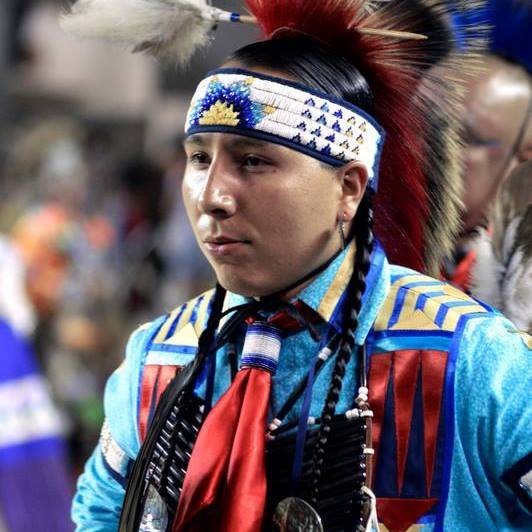
Jiles Turning Heart
(Lakota)
Hau, anpetu wasté (hello and good day), my name is Jiles Turning Heart. I am a Hunkpapa- Mnicoujou-Oglala member of the Lakota Nation. I was born and raised on the Cheyenne River Sioux Tribe reservation, in one of the poorest counties in the United States. Through my culture, I inherited the Mitakuye Oyasin (all my relations) worldview. This Lakota philosophy respects the relation of all beings working together as part of a whole and it’s a perspective I incorporate into my work with Indigenous language revitalization.
After earning a B.A. in Film & Media Studies from Dartmouth College, I created language and culture films in Alaska (USA), Oklahoma (USA), and Aotearoa (New Zealand). I also have extensive experience documenting Indigenous speakers and endangered languages. I am learning both my language. We are raising our three children, Chaské (age 6) and Nahalay (age 4), and sEOdalA (age 1) as fluent speakers of our Indigenous languages. I seek to be an advocate for Indigenous youth in language and cultural revitalization in order to create new speakers among the youngest generation. As a first-generation high school and college graduate, I continued my education to pursue a Bachelor of Science in Cellular and Molecular Biology and a Master of Fine Arts in Screenwriting. I am committed to serving as a role model for disadvantaged Indigenous youth and helping them find a voice through academics, storytelling, and learning from elders.
-

Jacob Manatowa-Bailey
(Sac and Fox Nation)
Jacob Manatowa-Bailey was the founding Director of the Sauk Language Department for the Sac and Fox Nation of Oklahoma (2005-2016). Jacob currently works as an advisor providing planning assistance to Indigenous Language Revitalization programs. Concurrently, he is a doctoral student at the University of Victoria researching the relationship between historical trauma, language, and healing.
-

Stanley Rodriguez
(Kumeyaay)
Stanley Rodriguez, member of the Kumeyaay Santa Ysabel Band of the Iipay Nation is an educator, language teacher, and tribal singer. He is an advocate for his community’s culture and traditions and serves in a number of advising and teaching roles in the San Diego and Native Kumeyaay communities. He has held the elected position of legislator for the Santa Ysabel Tribe of the Iipay Nation. Stanley is a US Navy veteran, has an MA in Human Behavior worked as a Drug and Alcohol Abuse Counselor and now teaches full time, having just completed his PhD in Higher Education from UCSD. Stan Rodriguez learned from his Grandmother and other Kumeyaay Elders the methods and culture. Rodriguez sits on the board of a group whose vision is to strengthen language and cultural revitalization, known as the Advocates for Indigenous California Language Survival. Rodriguez has been teaching Kumeyaay language classes at Kumeyaay Community College on the Sycuan Reservation since 2000. Rodriguez does this work in an effort to bring Native American culture to any willing to learn. He has taught workshops at the Northwest Indian Language Institute, and he has been supported by the Alliance for California Traditional Arts in his efforts to learn traditional song cycles, such as Wild Cat, from master artists. Rodriguez regularly performs and provides demonstrations of tribal songs, games, traditional tool making, and structure building.
-

Tori McConnell
(Yurok and Káruk)
Tori McConnell is from the Yurok and Káruk tribes of the lower Klamath River basin in far northern California. She is a recent graduate of the Native American Studies Department at the University of California, Davis (Class of 2021), and is currently a Káruk language apprentice to master speaker Julian Lang.
Contact Us
For all inquires related to the MAP conference, please contact:
Samantha Armstrong
Phone: 0401 164 158
Email: pertame.samantha@gmail.com
